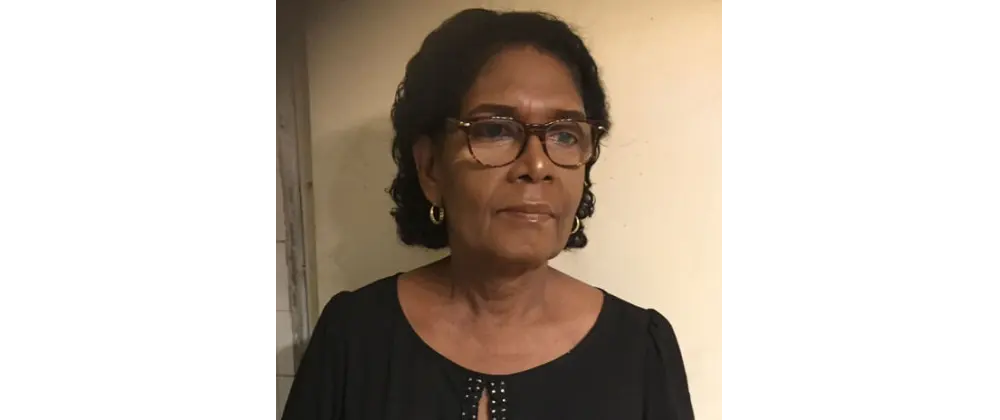by Marie-Therese Belisle Nweke
Thursday, October 24, 2024
I read Glen Gillett’s latest piece, “Philosophy and Politics,” on this election and I wish I could share his optimism.
I am not a cynic or a pessimist, just a dyed in the wool sceptic. Perhaps this has to do with the fact that I know there are more fools in this world than wise people. Plus, after seeing the line-up of major members of America’s capitalist parasitic class all behind Trump, who is a smaller member of their club, and for purely opportunistic reasons, since their only ideology is the power of money, the desperation to win will ensure it is doable. I shall not hold my breath – Qué sera, sera. And let the heavens fall! (Thérèse)
—————————————
An Aside:
At Wesley School in Belize City, we had to study the history of “British Honduras” from Primary 1 to 6. We learnt then that the Settlement of Belize began in 1638. We were taken to buildings on then Regent St. in which ballasts from slave ships formed part of them. We also learnt that St. John’s Anglican Cathedral, said to be the oldest building in Central America, was built with slave labour.
That reminds – the last Miskito (Waika) king, an ancestor of yours (Evan X) and mine on my mother’s side and your maternal grandmother’s side, was the last Miskito king to be crowned there. That was in 1816 and he was George Frederic Augustus 1. The Miskito are the indigenous people of Nicaragua and Honduras. But their land later became a protectorate of Britain, and they generally converted to Christianity; hence their many links to Belize.
At Wesley College, we studied World History in Form 1. So we learnt about the Sumerians and empires such as the Mongol, the Quing, those of Persia, Greece, Rome and the Ottoman. We also learnt about the world’s greatest religions, such as Islam, Buddhism, Taoism, Judaism and Christianity.
In Form 2, we did Commonwealth History, which meant studying about India, the Far East, Africa, Australia and Canada.
It was in Forms 3 and 4 that we were immersed with the History of the Caribbean by texts written solely by brilliant West Indian scholars, some of whom I later met at UWI as my lecturers; one was even the dean of my faculty and taught me political philosophy. In one text book we studied at Wesley College, these historians bluntly stated and proved that the British abolished slavery and freed their slaves primarily for ECONOMIC reasons. Slavery had become not only expensive and an economic drain, but Britain was at the height of its industrial revolution and preferred machines to human labour. Secondary school at Wesley College lasted for four years, and then you wrote the Cambridge University Overseas School Certificate Exam.
This exam. was at the time the gold standard of British education at secondary level throughout the former British Empire. Remember that this empire had 120 colonies – the French had just 80 – and lasted for almost 400 years and ruled over almost 500 million people. The British controlled territory that would be the equivalent of 56 sovereign nation states today. That is why the English language is so ubiquitous, ditto for the laws, literature, culture and mores of this former empire, which are still very much alive in this 21st century. The British lion no longer roars, but it has bred cubs, one of whom we all know.
For the very few like myself who had university ambitions, just 7 of us signed on to two more years at Wesley College to write the Higher Schools certificate exam, or G.C.E. “A” Levels. All were girls and only one was a boy. Those, like myself, who elected to read History as one of our subjects found that we had to study British History (1688-1945) and European History (1492 – 1945). There was also the History of the Reformation, which was optional.
That was what the Wesleyan schools offered in Belize, or rather British Honduras, in the 1950s and 1960s. I have no idea what Wesley College, the oldest secondary school in Belize, is doing today. (Thérèse)

